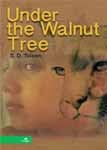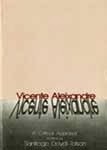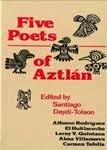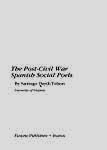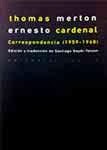Under the Walnut Tree, the novel I wrote a few years ago and was published by MediaIsla in September 2013, is narrated in the fist person by the protagonist, Ari, a boy of undisclosed age.
The first page of the narrative gives a first glimpse into the character's personality and points to the nature of the story that is going to be told by him to no one in particular.
Here are some lines of the first chapter, titled "The End of Summer."
"Sitting there in class I felt like a caged animal. The wild, solitary beast I had imagined to be when playing alone in the woods all summer, had been trapped, cornered to submission by the rules of men. The teacher’s voice was a far away drone, something of a hypnotic spell calling me to sink back in my melancholic daydreaming. I couldn’t avoid looking out of the window to the wooded hills that rolled all the way beyond my sight into my Granddad’s land and the knoll where the black walnut tree, standing tall and imposing, was murmuring in the wind its ancient stories. The ones I had been enjoying all summer long as I spent hours of solitary wondering under its protective shade. Granddad had taught me to go there when in trouble with myself and let the mystery of my childish worries be absorbed by the quiet magnificence of the whispering tree and the surrounding landscape it commanded. Reclining on its bole many an evening I had learned to love the land of my ancestors, with its meandering rives and its hills that in successive increasing waves of green climbed to the coastal mountain range from the ample arch of the beach and dunes."
The first page of the narrative gives a first glimpse into the character's personality and points to the nature of the story that is going to be told by him to no one in particular.
Here are some lines of the first chapter, titled "The End of Summer."
"Sitting there in class I felt like a caged animal. The wild, solitary beast I had imagined to be when playing alone in the woods all summer, had been trapped, cornered to submission by the rules of men. The teacher’s voice was a far away drone, something of a hypnotic spell calling me to sink back in my melancholic daydreaming. I couldn’t avoid looking out of the window to the wooded hills that rolled all the way beyond my sight into my Granddad’s land and the knoll where the black walnut tree, standing tall and imposing, was murmuring in the wind its ancient stories. The ones I had been enjoying all summer long as I spent hours of solitary wondering under its protective shade. Granddad had taught me to go there when in trouble with myself and let the mystery of my childish worries be absorbed by the quiet magnificence of the whispering tree and the surrounding landscape it commanded. Reclining on its bole many an evening I had learned to love the land of my ancestors, with its meandering rives and its hills that in successive increasing waves of green climbed to the coastal mountain range from the ample arch of the beach and dunes."






